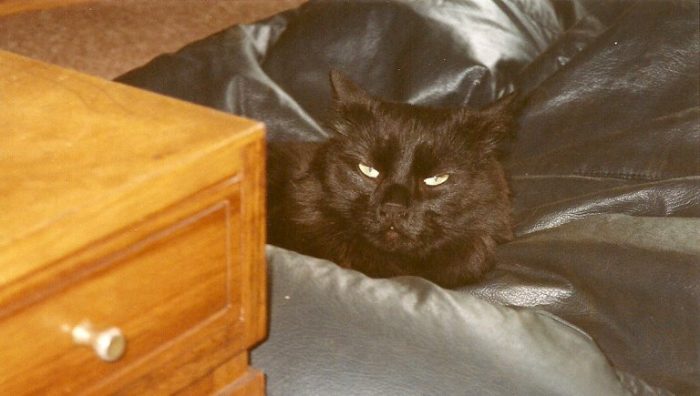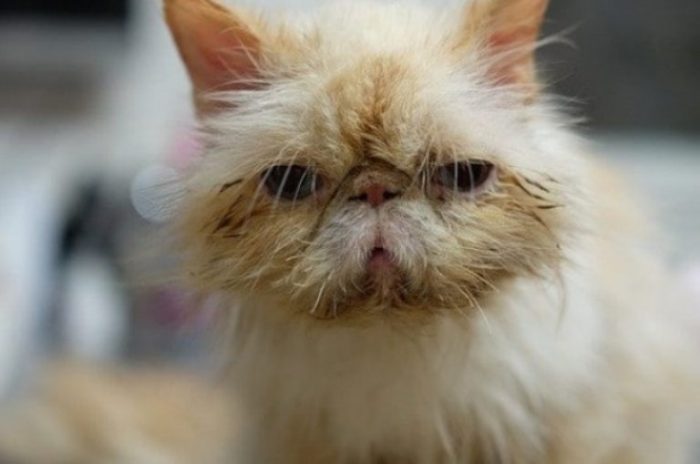One prominent mannerism exhibited by humans living with autism is anti-social behavior; this is not a result of the fact that he or she doesn’t like people. The reason is that an autistic person finds it difficult to grasp certain nuances of social interactions among people. Now, what about autism in cats? We have seen some members of the feline population that occasionally struggle while interacting with humans or other animals. Is this an indication of autism? Let’s find out.
Table of Contents
Understanding The Term Autism
ASD – full meaning Autism Spectrum Disorder is a form of developmental disorder encompassing a plethora of symptoms. Because of the surfeit of symptoms, many aspects of autism were confusingly divided into a good number of disorders, listing them under different names, like Aspergers. However, recent findings have led to it being consolidated into one broad spectrum. Some wide-ranging behaviors observed in autistic people include:
- Sensitivity to light, sound, taste, or smell.
- Discomfort at contact and difficulty in expressing needs and emotions.
- Difficulty in comprehending vocal tones, body language, and facial expressions.
- An aversion to making eye contact – they find it hard to relate with people.
- Preferring their own company.
- They tend to enjoy routine and repetition of actions, phrases, words, etc.
Autism In Cats – Can A Cat Be Autistic?
It is very easy for one to guess that autism in cats is not possible. No evidence exists that suggests that our feline companions can suffer from autism. Though research work into the mental health of animals is still in its teething stage, no links have been established between felines and autism so far.
However, researchers have ascertained that felines are likely to struggle with OCD and anxiety, and it may interest you to know that studies have suggested that some members of the feline population can suffer from a form of ASD. So, why do pet parents think that autism in cats is a possibility?
- Relative to humans, the felines’ sociable personalities tend to be less.
- Sensitivity is higher in cats than in humans, startling at sounds and noises that people find explainable.
- Cats spend a better part of their time in solitude which is perfectly normal for them and they are always on hyper-alert. After all, kitties are basically solitary, carnivorous predators.
Ultimately, the majority of those symptoms demonstrating unusual human behaviours are quite perfectly normal among the felines and may not portend autism in cats. However, pet owners are guilty of anthropomorphizing their animal friends – this means ascribing human behavioural expectations to animals like remorse or, in this particular case, taking pleasure in social activities.
In general, this is part of the fun to be derived from keeping a pet, however, it is very important for owners to avoid letting it affect their treatment of pet cats and how they meet the kitty’s non-human needs. Treating your feline companion wrongly can threaten their security, giving rise to aggression, anxieties, or a plethora of behavioral problems or mental ill-health.
Signs That Suggest Autism In Cats
Are there signs of autism in cats? Now, we have seen a variety of symptoms that are indications of autism in humans which may also be evident in felines. They may include symptoms revolving around vocalization, social interaction, intelligence, or extraordinary focus.
Vocalization
This is among the most obvious symptoms of human autism and probable autism in cats. Autistic patients always display a lack of proper verbal communication or they may tend to display direct excessive vocalization at a specific person.
If you observe your furry friend meowing, purring, or chirping only when it is close to you, this does not indicate that the kitty is autistic. There are some breeds of felines that are excessively talkative by default like the Oriental Shorthair; vocalization is quite rare in other breeds. Seek a vet’s opinion if the behavior appears to emanate from distress. Otherwise, having a very quiet cat – or a particularly vocal one doesn’t indicate that something’s wrong.
Lack of Social Interaction

It is not an indication of autism in cats when your furball lacks social interactions. Felines are known to be independent and thus, they need to spend time alone. The time may come when your cat will be displaying antisocial behaviors and totally reject contact with people and other pets – this is just a matter of their overall temperament.
However, a kitty’s level of exposure to social interactions with people and animals during its developmental process also comes to play. As it grows up, a cat that has been widely exposed to social interactions is likely to turn out friendly than those that grew up in solitude. Even a cat that is known to be sociable can suddenly change and start avoiding everyone – this is nothing to worry about. However, it’s easy to get the opinion of a vet when in doubt.
Extraordinary Intelligence and Intensity of focus
There are some cat breeds known for high intelligence like the Birman and Abyssinians. It has been established that felines can be quite capricious; however, a kitty’s unexpected interest or sudden expression of intelligence shouldn’t be taken as a sign of autism in cats!
A cat that displays particularly passionate focus on a specific item or toy can only mean that your furry companion has discovered a favourite. If your furbaby happens to be focusing all its attention on one thing, the only explanation is that it finds it more appealing than every other item.
Sensory Abnormalities or Lack of Focus
People who are autistic are often diagnosed with sensory abnormalities. This may also be observed in cats as some may appear to lack focus, display uncoordinated moves, as well as express reduced responsiveness altogether.
Again, this is not due to autism in cats, however, it may indicate that something is wrong with a cat’s wellbeing. This can range from anxiety to infected wounds, depression, organ failure, and many more – these are flashing signals that a vet’s attention is urgently needed.
Read Also: Are Calico Cats Always Female? Everything You Need To Know
How To Live With A Seemingly Autistic Cat
To be at its best, every cat requires loads of love and encouragement, pet parents must pay close attention to their feline furball to get a baseline of what’s normal and abnormal for them. A cat that suddenly starts to display abnormal behaviour may mean trouble, thus, owners need to find out the course of such behavioural change. Just like a mother cat is attuned to the needs of its young, cat parents must also be responsive and caring.
.
Sometimes, all a cat may want is to have its space and you must respect this wish. If you want your cat to socialize, then, the onus is on you to show it some positive reinforcement. Let the kitty know that interacting with humans is a positive experience, but never try to force it.
In conclusion, autism in cats does not exist, thus, those behavioural tendencies we tend to associate with feline autism may well turn out to be normal among cats.
